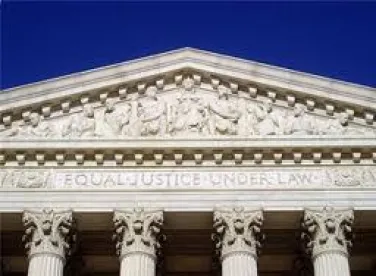Earlier this month, the Supreme Court confirmed that federal appeals courts should apply a deferential standard of review to federal district court determinations regarding the legal sufficiency of EEOC subpoenas.
What Happened in McLane?
McLane, a national supply-chain services company, refused to respond to a demand by the EEOC that it produce certain information, including “pedigree information” – that is, employee identifying information – to supplement the general and anonymous information it had already provided to the EEOC in response to its initial requests. The EEOC issued administrative subpoenas to McLane and when McLane again refused to produce the requested information, the EEOC sought enforcement of its subpoenas in the district court.
The district court declined to enforce the subpoenas to the extent they sought pedigree information, finding that such information, in the court’s view, was not relevant to the charges because it “could not shed light on whether” discrimination had occurred. The Ninth Circuit reversed after performing what’s call a de novoreview – that is, a review that does not provide any deference to the district court’s findings – having concluded that the district court had erred in finding the pedigree information irrelevant. However, the panel questioned in a footnote why it was alone among the circuit courts of appeals in applying this de novo standard of review in these subpoena enforcement situations as compared to the application of an abuse of discretion standard. Under the abuse of discretion standard, a reviewing court cannot reverse the lower court’s decision absent a definite and firm conviction that the district court committed a clear error of judgment in the conclusion it reached after weighing the relevant factors.
The Supreme Says the Right Standard is an Abuse of Discretion, Not De Novo
McLane v. EEOC challenged the Supreme Court to answer the question of whether a court of appeals should review a district court’s decision to enforce or quash an EEOC subpoena de novo or for abuse of discretion.
Choosing the latter of the two options, the Court rested its decision upon an examination of two factors: (1) the longstanding practice of the courts of appeals in reviewing a district court’s decision to enforce or quash an administrative subpoena for abuse of discretion, and (2) basic principles of institutional capacity to make such decisions.
First, the Court pointed to decades of precedent that mandated deferential review of a district court’s decision to enforce or quash subpoenas issued by the National Labor Relations Board (“NLRB”) pursuant to its authority under the National Labor Relations Act (“NLRA”). In 1972, Congress amended Title VII of the Civil Rights Act of 1964 (“Title VII”), incorporating the NLRA’s subpoena provisions into that statute and granting the same authority to the EEOC that the NLRB had for the preceding three decades. In the Court’s mind, this long history of appellate practice carries significant persuasive weight.
Next, the Court explained that a court of appeals should defer to a district court because district judges are better suited than circuit judges to engage in the kind of fact-intensive inquiry necessary to analyze whether the evidence sought by subpoena is relevant to the specific charge or whether the subpoena is unduly burdensome under the circumstances. Said Justice Sotomayor, writing for the majority, “[t]he decision whether to enforce an EEOC subpoena is a case-specific one that turns not on a neat set of legal rules, but instead on the application of broad standards to multifarious, fleeting, special, narrow facts that utterly resist generalization.” District judges frequently engage in such inquiries in other contexts, such as whether evidence is relevant at trial and whether pre-trial criminal subpoenas are reasonable. Additionally, deferential review “streamline[s] the litigation process by freeing appellate courts from the duty of reweighing evidence and reconsidering facts already weighed and considered by the district court.”
What Does this Mean for Employers?
While this decision allows employers to breathe a collective sigh of relief that appellate courts will not take a full second bite at the apple after a lower court quashes an EEOC subpoena, it does not mean that employers are off the hook when it comes to compliance with EEOC subpoenas. The Court made it clear that the law requires district judges deciding the propriety of an EEOC subpoena to liberally construe the term “relevant” to give the EEOC access to virtually any material that might cast light on the allegations against the employer. While this analysis does not require deference, per se, to the EEOC’s opinion of what is relevant, it does mean that district judges will still be likely to enforce EEOC subpoenas that are proportional to the case and not unduly burdensome to the employer. Therefore, employers may wish to consider negotiating with the EEOC to limit the request before resorting to litigation. Additionally, employers should understand that the application of this lower discretionary standard of review cuts both ways: it also means that an employer can’t expect a fresh look at the facts on appeal when the district court decides to enforce a subpoena in the EEOC’s favor.



 />i
/>i

